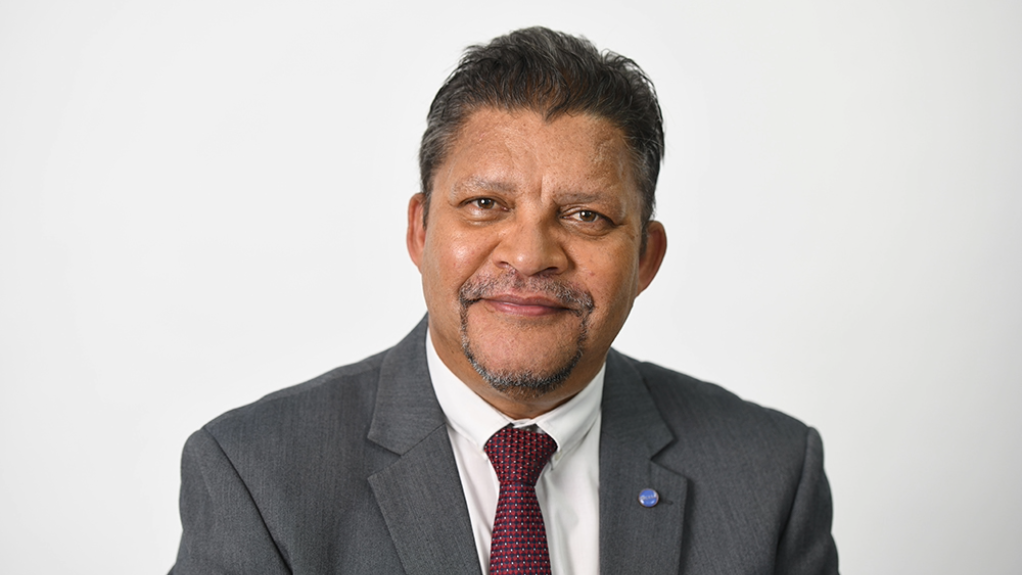Upliftment of engineers critical to industrial development



ROBUST WORKFORCE NEEDED A more robust engineering workforce can drive technological advancements and operational efficiencies in mining
Photo by Adobe Stock
CHRIS CAMPBELL Reforms are crucial to innovate and advance the industry through home-grown talent
There is a critical need for broader educational reforms to encourage and increase the potential for take-up of engineering as a career among youth, including in the country’s mining sector, which “remains the backbone of South Africa’s economy”, industry body Consulting Engineers South Africa (Cesa) tells Mining Weekly.
To address this issue, Cesa emphasises the importance of overhauling the educational system to make engineering more accessible and appealing to young people. This includes integrating more comprehensive science, technology, engineering and mathematics curricula at primary and secondary education levels; offering targeted scholarships and internships; and fostering partnerships between industry players and educational institutions.
“Such reforms are crucial not only to fill the immediate gaps in the workforce, but also to innovate and advance the industry through home-grown talent,” says Cesa CEO Chris Campbell.
He explains that a more robust engineering workforce can drive technological advancements and operational efficiencies in mining, ensuring sustainable growth and environmental stewardship.
“As South Africa continues to navigate economic challenges and opportunities, the role of a skilled and dynamic engineering sector cannot be overstated, making educational reform a national priority.”
Understanding the need for reform, Cesa has therefore also advocated for the importance of engineers in South Africa through its ‘Protecting Lives and Livelihoods’ campaign, which highlights the vital role engineers play in developing infrastructure – a key catalyst for job creation and long-term sustainable employment that is required to grow the economy.
Infrastructure development across South Africa is important for the development of towns, cities and in the provision of basic services to citizens, as well as for mining operations, where critical infrastructure such as roads, bulk water supply, electricity and sewerage are necessary for successful operations.
The campaign also aims to unite stakeholders in infrastructure development to discuss and devise sustainable solutions to these pressing challenges.
“It is important to construct robust and sustainable infrastructure that not only endures over time, but also prioritises the health and safety of South Africa’s population,” says Campbell.
Tech-savvy
Cesa, which represents over 580 consulting engineering firms employing over 19 000 people nationally, continues to encourage its members, including those operating in the mining sector, to actively mentor the next generation of engineers.
“Our member companies are dedicated to mentoring young engineers, including those specialising in mining. This mentorship is crucial for effective succession planning and ensures the sustainability of expertise within the sector,” states Campbell.
He emphasises that such mentorship is vital for maintaining a steady pipeline of skilled professionals capable of sustaining and advancing the local mining industry.
Additionally, Cesa continues to advocate for collaboration between well-established mining companies and newer engineering consultancies to foster innovation and make the sector more appealing to young engineers.
“Such partnerships could create a more dynamic and supportive environment that is likely to attract younger professionals,” suggests Campbell.
These collaborative efforts are part of Cesa’s broader initiative to integrate fresh ideas and modern technological approaches into traditional mining operations.
One of the significant hurdles Campbell highlights is the perception that traditional mining roles are mundane compared to modern, technology-based careers.
However, he highlights a promising opportunity in integrating the latest technology with traditional mining practices.
The mining industry has long embraced technology to enhance safety and efficiency, particularly in high-risk operations, such as deep-level mining, he says, adding that this integrated approach could potentially revitalise the interest of youth in careers within the mining sector.
Sector and Skills Involvement
Cesa’s involvement extends to national initiatives under the banner of a national multi-disciplinary and multi-sectoral engineering collaboration known as The South African Forum for Engineering.
This collaborative effort brings together voluntary and industry associations from various engineering disciplines, statutory bodies and academia, to address industry-wide challenges and align educational programmes with industry needs to contribute to growing and maintaining a sustainable engineering skills base in the country.
This broad collaborative effort is essential for sustaining the local engineering capacity that needs to be retained and grown for the future of mining and other infrastructure-related developments.
“Breaking down the operational silos and promoting a unified approach addresses the real challenges of our industry more effectively,” says Campbell, noting that companies across the sector are feeling the impact of an ageing cadre of experts, coupled with younger practitioners departing to what are perceived to be “greener pastures”.
In response, Cesa is advocating for the increased development of younger practitioners to bridge this gap, but it warns that this will have to be coupled with addressing the systemic issues which constrain the pipeline of future engineering practitioners at basic education levels.
Relatedly, focusing on encouraging more young female learners to pursue engineering as a career choice, will also be required.
Capacity Constraints
A significant example of the capacity constraints in the mining sector is the challenge that mining companies are experiencing to become compliant with global standards, such as the Global Standard for Tailings Management, which demands engineering expertise to mitigate risks associated with tailings dams – a key area in mining operations known for its environmental impact and risk.
Beyond technical training, Cesa highlights the importance of developing critical skills, such as communications and report writing, through its School of Consulting Engineering, which was founded in 2000, and offers a variety of courses for mining professionals.
These skills are essential for conveying complex project details effectively to clients and stakeholders in the mining sector and beyond, highlights Campbell, noting that such skills complement the invaluable technical knowledge that engineers need for effective project management, meaningful communication and client relationship building.
Further, he reiterates the significant economic role of the mining sector in South Africa and calls for enhanced efforts to address the logistical challenges, facilitate prospecting without up-front overly onerous requirements, encourage and regulate small-scale mining and root out illegal mining activities.
“Our inability to achieve the latter is already adversely affecting the industry and the local communities living in the proximity of old and abandoned mining operations,” laments Campbell.
He adds that through these efforts, Cesa is advocating for broad collaboration in support of technological advancement, safe and sustainable job creation upholding all standards, and advancing engineering competencies in mining, and health and safety to ensure the sustainability and growth of South Africa’s mining sector in a rapidly evolving, globally competitive market.
This multifaceted approach is essential for maintaining the relevance and vitality of the mining sector as a key contributor to the country’s economy, concludes Campbell.
Article Enquiry
Email Article
Save Article
Feedback
To advertise email advertising@creamermedia.co.za or click here
Press Office
Announcements
What's On
Subscribe to improve your user experience...
Option 1 (equivalent of R125 a month):
Receive a weekly copy of Creamer Media's Engineering News & Mining Weekly magazine
(print copy for those in South Africa and e-magazine for those outside of South Africa)
Receive daily email newsletters
Access to full search results
Access archive of magazine back copies
Access to Projects in Progress
Access to ONE Research Report of your choice in PDF format
Option 2 (equivalent of R375 a month):
All benefits from Option 1
PLUS
Access to Creamer Media's Research Channel Africa for ALL Research Reports, in PDF format, on various industrial and mining sectors
including Electricity; Water; Energy Transition; Hydrogen; Roads, Rail and Ports; Coal; Gold; Platinum; Battery Metals; etc.
Already a subscriber?
Forgotten your password?
Receive weekly copy of Creamer Media's Engineering News & Mining Weekly magazine (print copy for those in South Africa and e-magazine for those outside of South Africa)
➕
Recieve daily email newsletters
➕
Access to full search results
➕
Access archive of magazine back copies
➕
Access to Projects in Progress
➕
Access to ONE Research Report of your choice in PDF format
RESEARCH CHANNEL AFRICA
R4500 (equivalent of R375 a month)
SUBSCRIBEAll benefits from Option 1
➕
Access to Creamer Media's Research Channel Africa for ALL Research Reports on various industrial and mining sectors, in PDF format, including on:
Electricity
➕
Water
➕
Energy Transition
➕
Hydrogen
➕
Roads, Rail and Ports
➕
Coal
➕
Gold
➕
Platinum
➕
Battery Metals
➕
etc.
Receive all benefits from Option 1 or Option 2 delivered to numerous people at your company
➕
Multiple User names and Passwords for simultaneous log-ins
➕
Intranet integration access to all in your organisation




















